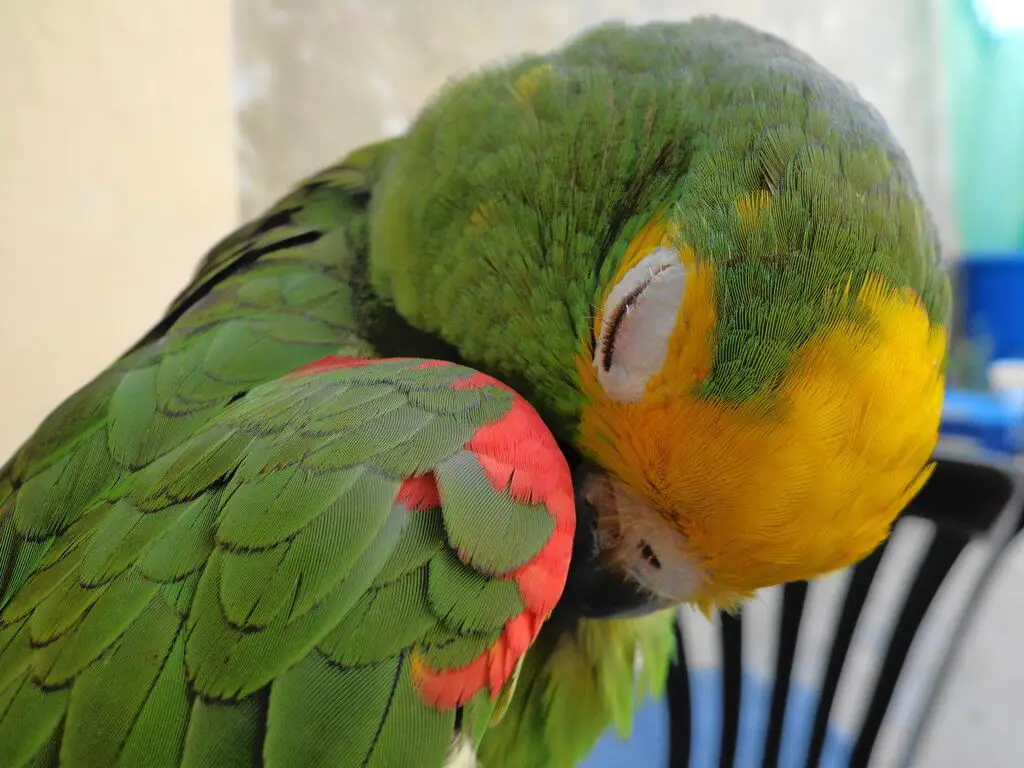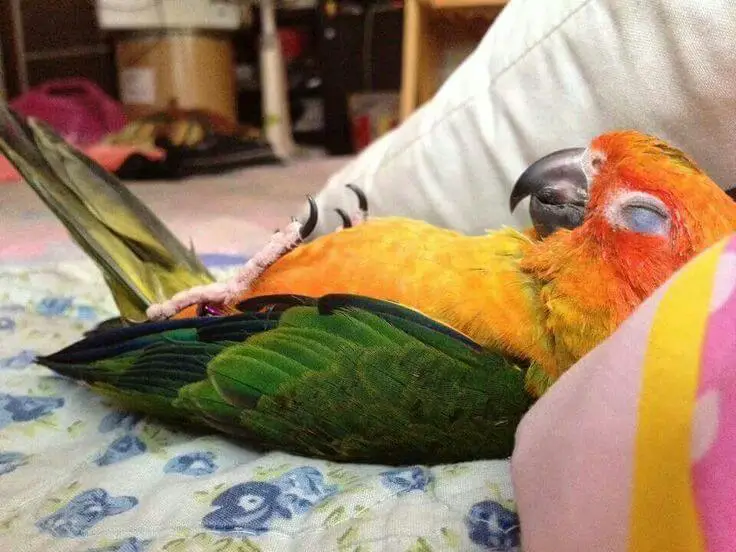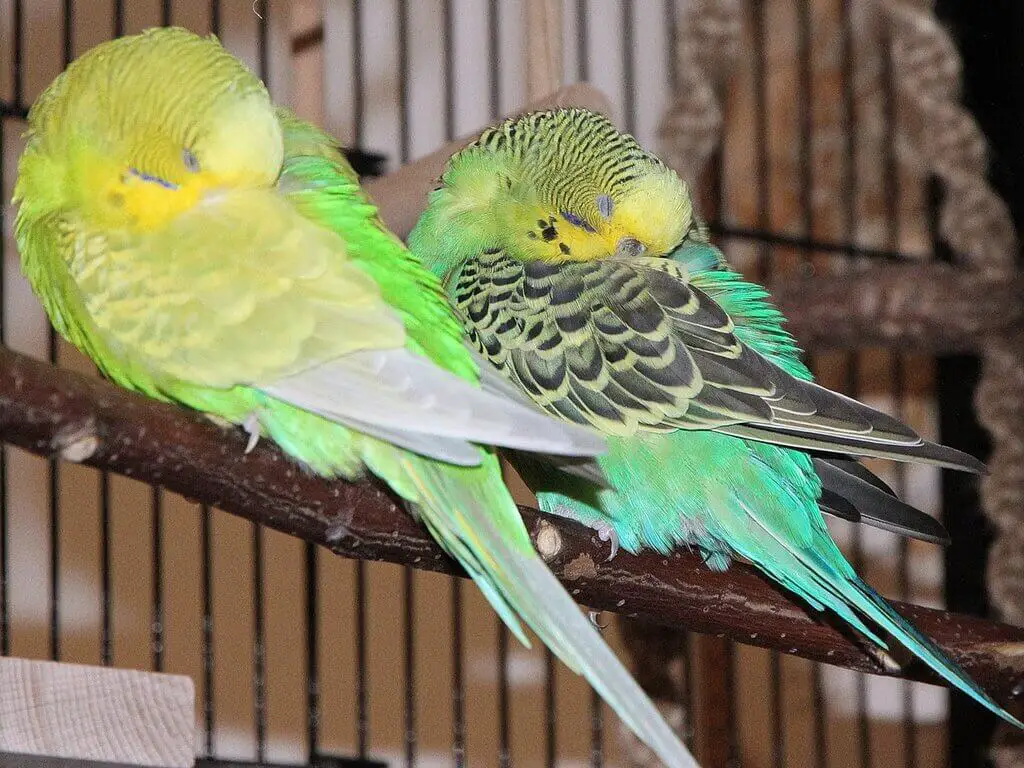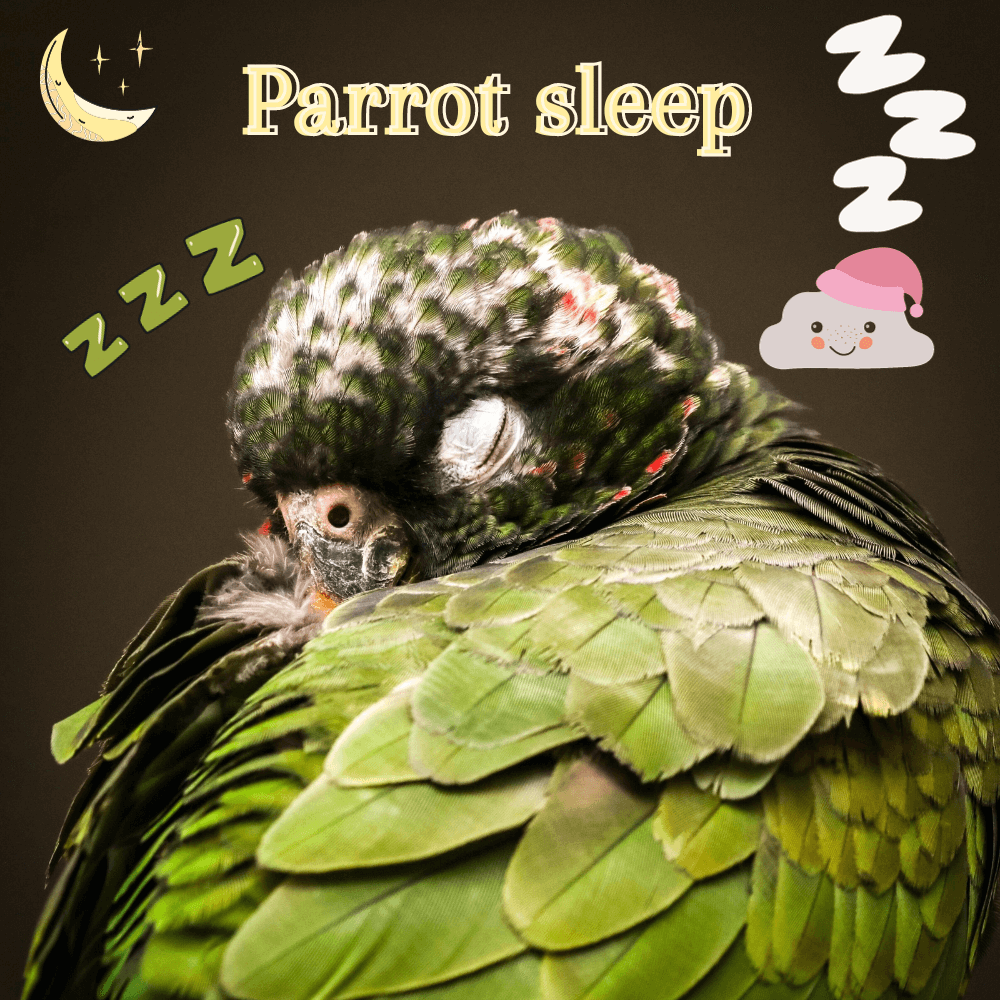Parrot sleep: Parrots are fun and active pets. In order for the bird to always be healthy and in good spirits, it is important, when keeping it, to ensure correct sleep and wakefulness. That’s why you need to know how long it takes a parrot to sleep.
How Much Sleep Does My Parrot Need?
In nature, wavy parrots live in Australia. It is very hot here, and therefore birds often prefer to snooze even in the daytime, hiding from the scorching sun in the shade of dense foliage. In their genes, this habit has also been preserved by individuals born in artificial conditions, and therefore many of them prefer to rest in the afternoon, often in summer.
The owner should not be frightened by this behavior, daytime sleep does not indicate boredom or illness of the parrot – this is the norm. Typically, a pet needs at least half an hour for a rest day.
In order for the bird to sleep peacefully at night, it needs to provide complete darkness and silence. A full night’s sleep a parrot lasts from 10 to 12 hours, and in winter this period can last up to 14 hours.
If the pet is active, mobile and active, it can sleep all the time.
Parrot sleeping positions

Experts in the field of ornithology recommend observing what position the parrot is sleeping in. Many of them like to sleep, standing on one leg. Only tough and strong birds are capable of this, only they can maintain balance.
If the owner does not notice that the pet is sleeping on one foot, this may be an indication of the unhealthy condition of the bird. If she is weak, injured, inflamed, or otherwise in poor condition, she will most likely sleep on her feet. Older individuals prefer the same position for sleeping.
Seeing that the parrot is sleeping, roosting, and with its feathers buried in its beak, the owner should know that most likely the pet has frozen. In this position, he tries to keep his body warm. The owner needs to change the temperature in the cage of the feathered pet because excessive cold is very dangerous for the wavy parrot.
Parrot sleeping

Noting that the bird sleeps up to 12 hours a day, don’t worry. Even worse, if you can’t fall asleep in time. Sleeping birds will feel uncomfortable, their appetite will be spoiled, and they will be given insufficient time to sleep at night, which distorts the necessary sleep-wake regime and negatively affects the health of the parrot.
To ensure good sound sleep for your pet, with the arrival of night, it is necessary to exclude all extraneous sounds, turn off the computer, radio, and music, close the window, and even close the curtains tightly.
The fear of a parrot can be the shadow of a car driving down the street or a hanging toy raised from a draft.
It is important to turn off the phone so that an unexpected night call does not scare away the router. Many people cannot sleep without a TV and turn it off only after waking up in the morning. The parrot in this case will be alert throughout the night, and the flashing of the screen will alarm the tired bird, after which it will have to make up for daytime hours of sleep.
Another moment that can scare a parrot is falling from a perch. Many owners clean all the swings and poles at night. The fact is that a parrot sleeping on one leg at night can lose its balance and fall. He is unlikely to go into shock, but he will be very frightened and will not be able to sleep for a long time. Some owners put a cardboard shelf in the cage as a “bed”, from which pets cannot fall.
If one does not succeed in observing sleep and wakefulness, and the pet is active at night, and then sleeps all day, it is possible to cover its cage with a nightcap. Choose a breathable material so that there is natural ventilation in the cage.
Do not expect that the parrot’s sleep will improve immediately, but after a few days the pet will adapt to the new regime and the head will be considered a suitable condition for immersion in sleep.
After some time, the wavy driver will head to his usual place to sleep when he sees the veil in his hands. If suitable conditions for sleeping are not created, the bird will not sleep. For an animal with chronic sleep deprivation, the following symptoms are characteristic:
- Loss of a feather
- Tendency to pluck feathers.
- Regular lethargy and lethargy;
- Irritability.
- Depression.
- Aggression.
- Lack of appetite
- Unplanned egg laying.
If nothing terrible is found during the examination and analysis, the owner must change the conditions of detention, including adjusting sleep and wakefulness.
Is it possible to wake up?

Sometimes a parrot is required, on the contrary, not to be put to bed, but to wake it up. For example, a pet has settled into a familiar sleep for half an hour, but the owner has planned a trip to the vet. As noted before, the bird must feel safe during sleep, therefore it is impossible to suddenly alert the parrot with loud sounds.
A pet, awakened by sudden loud music during sleep, will begin to panic, which can provoke cardiac arrest. If you do not follow such a terrible outcome, the bird that wakes up sharply will become nervous and fearful for a long time, will not fall asleep completely for several days, and may lose its credibility with the owner.

